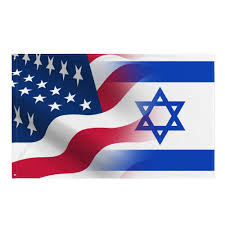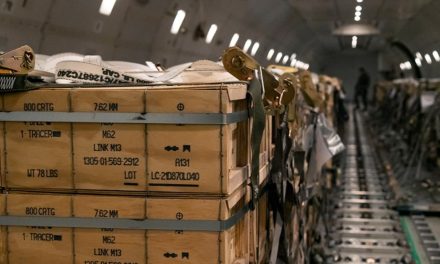In the chaotic landscape of global politics, the West’s selective response to international conflicts exposes a glaring hypocrisy. While over 5,000 sanctions have been imposed on Russia for the Ukraine conflict, Israel continues to commit atrocities in Gaza and Lebanon, largely unchecked by the very powers that claim to champion human rights.
The recent Israeli escalation into Lebanon, coupled with the attacks on Gaza, has not only resulted in the deaths of thousands but has also shown the West’s stark double standards in dealing with aggression. The increasing human toll, including the deaths of women, children, and journalists, paired with Israel’s refusal to commit to ceasefire agreements, highlights the inconsistency of the West’s supposed dedication to justice and international law.
Meanwhile, Israel continues to receive diplomatic and military support from the U.S. and its Western allies, despite the rising humanitarian crisis in Gaza. Iran’s recent retaliatory missile strikes targeting Israeli military assets have further complicated the regional dynamics, with the potential to escalate into a full-scale war. The message from Iran’s leadership is clear: “Cease hostilities, or face a devastating show of force.”
A Devastating Toll in Gaza
As the conflict rages on, Gaza has become a symbol of the West’s inconsistent application of human rights. The casualties, particularly among civilians, have been staggering. According to Gaza’s health ministry, more than 41,000 Palestinians have been killed since the beginning of Israel’s military campaign in 2024(
). These figures, corroborated by the United Nations, emphasize the scale of the humanitarian crisis unfolding in the region. A particularly egregious event occurred when an Israeli airstrike hit a school in Gaza City’s Al-Zeitoun neighborhood, killing 13 children and six women, one of whom was pregnant(
). The victims had been seeking shelter in what was supposed to be a safe haven, yet they became the latest statistics in a war with no end in sight.
The deaths of innocent civilians are not isolated incidents. Schools, hospitals, and residential buildings have become frequent targets in the conflict, leading to widespread devastation and displacement. These acts have drawn international condemnation, but little has been done to hold Israel accountable. In fact, Western powers have continued to supply Israel with military aid, enabling it to carry out such operations with impunity.
The impact on journalists has been equally catastrophic. As of October 2024, 116 journalists and media workers have been killed during the conflict, making it the deadliest period for reporters in modern history(
Committee to Protect Journalists
). This highlights the danger of documenting the truth in a conflict where narrative control is key. Despite the bloodshed, Western media has remained largely focused on framing Israel’s actions as defensive, further skewing global perceptions.
Iran’s Response: A New Front Opens
The situation took a dramatic turn when, in response to Israel’s continued aggression, Iran launched a barrage of missile strikes targeting key Israeli military assets. Reports indicate that hundreds of missiles, including hypersonic variants, hit Israeli air bases and military installations, destroying several F-16 fighter jets and tanks. The Iranian leadership, in a bold statement, declared: “This is just a small sample of our power. Cease hostilities, or we will unleash more of our might upon the Zionist regime.”
Iran’s unprecedented show of force has sent shockwaves through the region and beyond. For years, Israel and the U.S. had assumed that Iran would remain largely passive in the face of Israeli provocations. However, Tehran’s missile strikes have changed the calculus, and the threat of further escalation looms large. Iran’s message to the West is unmistakable: Israel’s impunity must end, or the consequences will be dire.
The Iranian retaliation was not unexpected. In earlier diplomatic negotiations, the U.S. had reportedly assured Iran that if it refrained from retaliating for the assassination of a high-ranking commander in Tehran, Israel would agree to a ceasefire(
Committee to Protect Journalists
). However, that ceasefire never materialized. Instead, Israel expanded its military operations in Gaza and Lebanon, leading to the current crisis. Iran, feeling betrayed by both Israel and its Western backers, chose to respond in kind, demonstrating that it would not sit idly by while its interests in the region were threatened.
Western Silence and Hypocrisy
The West’s response to Israel’s actions in Lebanon and Gaza starkly contrasts with its reaction to Russia’s invasion of Ukraine. When Russian troops crossed into Ukraine in 2022, the international community was swift in its condemnation. The United States, the European Union, and several other Western nations imposed over 5,000 sanctions on Russia, targeting everything from its financial institutions to its energy exports. The message was clear: acts of aggression would not be tolerated, and those who violated international law would be held accountable.
Yet, when Israel began its military campaign in Lebanon and intensified its strikes on Gaza, the West’s response was muted at best. Instead of sanctions or diplomatic pressure, Israel was met with continued military aid and political support. The U.S., in particular, has provided Israel with billions of dollars in military assistance, including advanced weaponry that has been used to target civilian infrastructure in Gaza. The justification, as always, is Israel’s “right to self-defense,” a narrative that has been used to excuse actions that, in any other context, would be deemed war crimes.
This hypocrisy undermines the credibility of Western nations, particularly the United States, which positions itself as the global champion of democracy and human rights. How can the U.S. justify sanctioning Russia for its invasion of Ukraine while simultaneously enabling Israel to commit similar atrocities in Gaza and Lebanon? The selective application of international law reveals the geopolitical motivations behind these decisions. In Ukraine, Russia’s actions threaten European security and Western hegemony, while Israel, a key ally in the Middle East, is seen as essential to maintaining stability in the region—no matter the cost to Palestinian lives.
The Human Cost of Western Inaction
The human cost of the West’s inaction is staggering. In Gaza alone, millions of people have been displaced, and thousands of families have lost their homes and loved ones. The healthcare system, already under strain due to years of blockade and intermittent conflict, is on the verge of collapse. Hospitals are overwhelmed, and medical supplies are running dangerously low as Israeli airstrikes target warehouses and distribution centers.
The psychological toll on the population, particularly on children, cannot be overstated. Entire generations of Palestinians have grown up under the constant threat of violence, and the trauma of losing family members and witnessing the destruction of their homes has left deep scars. Meanwhile, Israel’s continued expansion of settlements in the West Bank and its military presence in Lebanon further exacerbate tensions, making a peaceful resolution to the conflict seem increasingly unlikely.
The Role of the Media
The media has played a crucial role in shaping public perception of both the Israel-Palestine conflict and the war in Ukraine. In the case of Ukraine, Western media has been almost unanimous in its condemnation of Russia’s actions. Daily reports of Russian war crimes, civilian casualties, and the destruction of Ukrainian cities have dominated headlines, and there has been a concerted effort to portray Ukraine as a victim of unprovoked aggression.
In contrast, the coverage of Israel’s actions in Gaza and Lebanon has been far more nuanced, often framing Israel’s military operations as a necessary response to terrorism. The deaths of Palestinian civilians, including women and children, are frequently downplayed or justified as collateral damage in the fight against Hamas. This double standard in media coverage has contributed to the West’s continued support for Israel, as public opinion in Western countries remains largely sympathetic to Israel’s narrative of self-defense.
The Path Forward
If the West is serious about promoting peace and stability in the Middle East, it must hold Israel to the same standards it applies to Russia. The continued support for Israel’s military actions not only perpetuates the cycle of violence in Gaza and Lebanon but also undermines the West’s credibility on the global stage. The U.S. and its allies cannot continue to claim the moral high ground while turning a blind eye to Israel’s war crimes.
Iran’s recent missile strikes should serve as a wake-up call to the international community. The conflict in Gaza and Lebanon is not just a local issue—it has the potential to escalate into a broader regional war, with devastating consequences for all involved. The West must take a more balanced approach to the conflict, applying pressure on Israel to cease its military operations and engage in meaningful negotiations with its neighbors.
At the same time, the West must also address the underlying issues driving the conflict, including the Israeli occupation of Palestinian territories and the blockade of Gaza. Until these issues are resolved, there will be no lasting peace in the region.
In conclusion, the West’s hypocrisy in its response to Israel’s actions in Gaza and Lebanon, compared to its sanctions on Russia, is both morally indefensible and strategically shortsighted. The double standards applied to these conflicts only serve to fuel resentment and further destabilize the region. It is time for the international community to take a more principled stance, holding all nations accountable for their actions, regardless of political alliances. Only then can we hope to see a more just and peaceful world.





